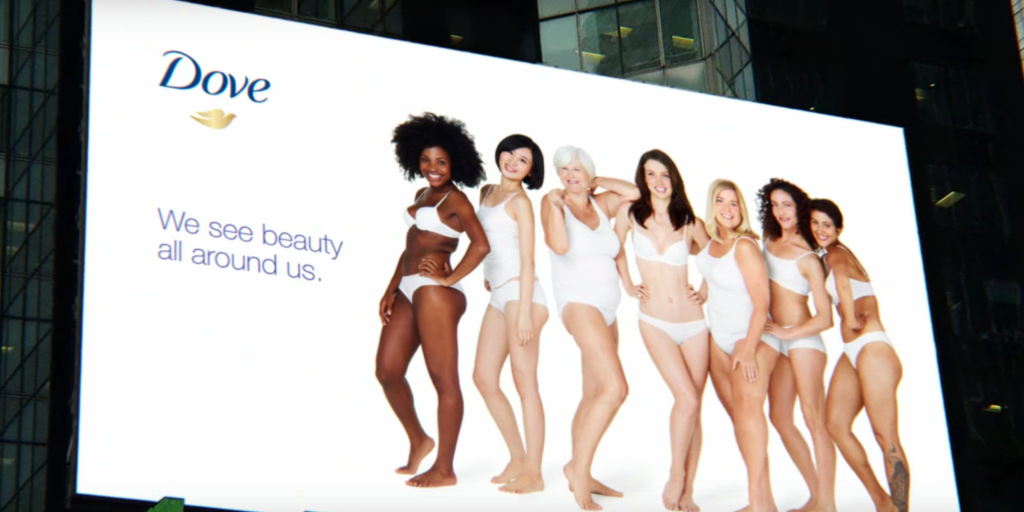What is Diet Culture?
- Erin Adams
- Sep 5, 2022
- 4 min read
Diet culture consists of shared ideas and habits that people believe they have to take part in to be healthy. Diet culture is doing things “for health” when in reality, it is a disguise for changing one’s weight or body.
It associates appearance with one’s self-worth.
It teaches us that thinner is healthier
It teaches us that exercise should be a punishment for the food we eat
It teaches us that we have to EARN our food.
It often sets us up to create strict food rules for ourselves. Doing things “for health” eventually ends up not being not very healthy at all. Weight and physical appearance have, somehow, crept its way up to the top of the list of what society thinks is the main indicator of health, diet culture messages are everywhere we look.
What society considers to be the ideal body is highly influenced by social media, advertisements, models, movie stars, and other celebrities. Society’s ideal body image has fluctuated with trends since the 1900s. However, it has consistently promoted thin, lean, and "fit" body types. This has caused women all over the world to strive for crazy body standards. The ideal body is also the reason for endless exercise and dieting programs, cleanses, supplements, and even surgeries that push people towards society’s standard of beauty, creating a billion-dollar industry that uses advertising to grasp at women’s insecurities. Unfortunately, it is common to struggle through the same pattern, cycling through diet culture’s claims to health just to achieve a look that isn’t sustainable nor healthy.
How do we recognize diet culture in our own lives?
Diet culture messages are everywhere we look. Beginning to recognise them as diet culture is the hardest part. It is exciting to notice, however, the change taking place with certain companies creating their advertisements to be more realistic and inclusive.
Why can diet culture be harmful?
When you think of potential dangers that can come from dieting, physical symptoms are usually the first thing that comes to mind. Diet culture repeatedly states that eating too much or eating the “wrong” things will equal overweight and obesity, which is deemed as bad. This leads to praising restrictive eating, complimenting it as dedication and self-control. The dangers of dieting that people fail to recognize is that diets (or food rules), more often than not, lead to disordered relationships with food, body, and movement. This can happen to all bodies, regardless of size, age, race, ethnicity, culture, gender, sexual orientation, socioeconomic status, or political view. It often looks very similar.
Does any of the following sound familiar?
You tell yourself to start the day/week/month/year off being healthy. Your stomach growls but you try to ignore your hunger. You choose the healthiest, lightest, low-calorie options - the foods that fall within your set of food rules, regardless of taste and appetite. You do this for as long as you can, until you just can’t anymore. You “mess” it up. Then you say screw it because the “progress” you made is already ruined. You end up eating copious amounts of food because it tastes so good, because you are hungry, because you know that tomorrow you will get back on track and you won’t be able to have all the food then. After this eating, you feel shame, you blame yourself for not having self control, you feel sick, you compare yourself to others, and you make a new plan for how you will do better. The next day you spend extra time in the gym to make up for going off track the day before. Then the cycle repeats: restrict, binge, punish, repeat.
This does not only take a toll on your physical health, but your mental and emotional health. The shame, comparison, and discouraging thoughts are draining and damaging. In fact, having a disordered relationship with food, body and movement, puts one at a higher risk of developing an eating disorder. This is why we need to stand up and dismantle diet culture. Thankfully, there is an amazing anti-diet movement beginning, a group of inspiring individuals passionate about not letting food control everyday life. Anti-diet does not mean anti-health. Anti-diet just accounts for your overall wellness, allowing you to drop the obsession and live your life again.
What are the advantages of ditching diet culture?
Moving away from diet culture can improve your physical, mental and emotional well-being. Removing stress that you previously put on yourself to live up to a certain standard can bring a more positive, enjoyable way of life. A life that includes less comparing yourself to others and less discouraging thoughts towards yourself. You can learn to make room for all foods - honoring your hunger and feeling your fullness. This means no more hanger and enjoying lunch out with friends. This means quitting exercising for punishment and beginning to find movement that you enjoy. Just know that everyone is capable and deserving of honoring their body as is and becoming more present in their daily life.
How can one begin to transition their mindset away from diet culture?
It can be challenging to start seeing all things food, body, and movement in a new light, but it will be so worth it. Diet culture messages are often ingrained in us subconsciously. Download this resource for some actionable ways that can help you ease into changing your mindset to improve your overall well-being.


________________________
If you struggle with Binge Eating or Bulimia Nervosa, and would like support to recover, please contact Erin Elizabeth to find out ways you can get help.
Register now for the 20 week Binge Eating Treatment Programme
________________________
If you suffer from Depression or Anxiety and would like support to manage your mental health through targeted nutrition intervention, please contact Erin Elizabeth to find out ways you can get help.
Register now for the Food+Mood Nutrition for Mental Health Programme






Comments